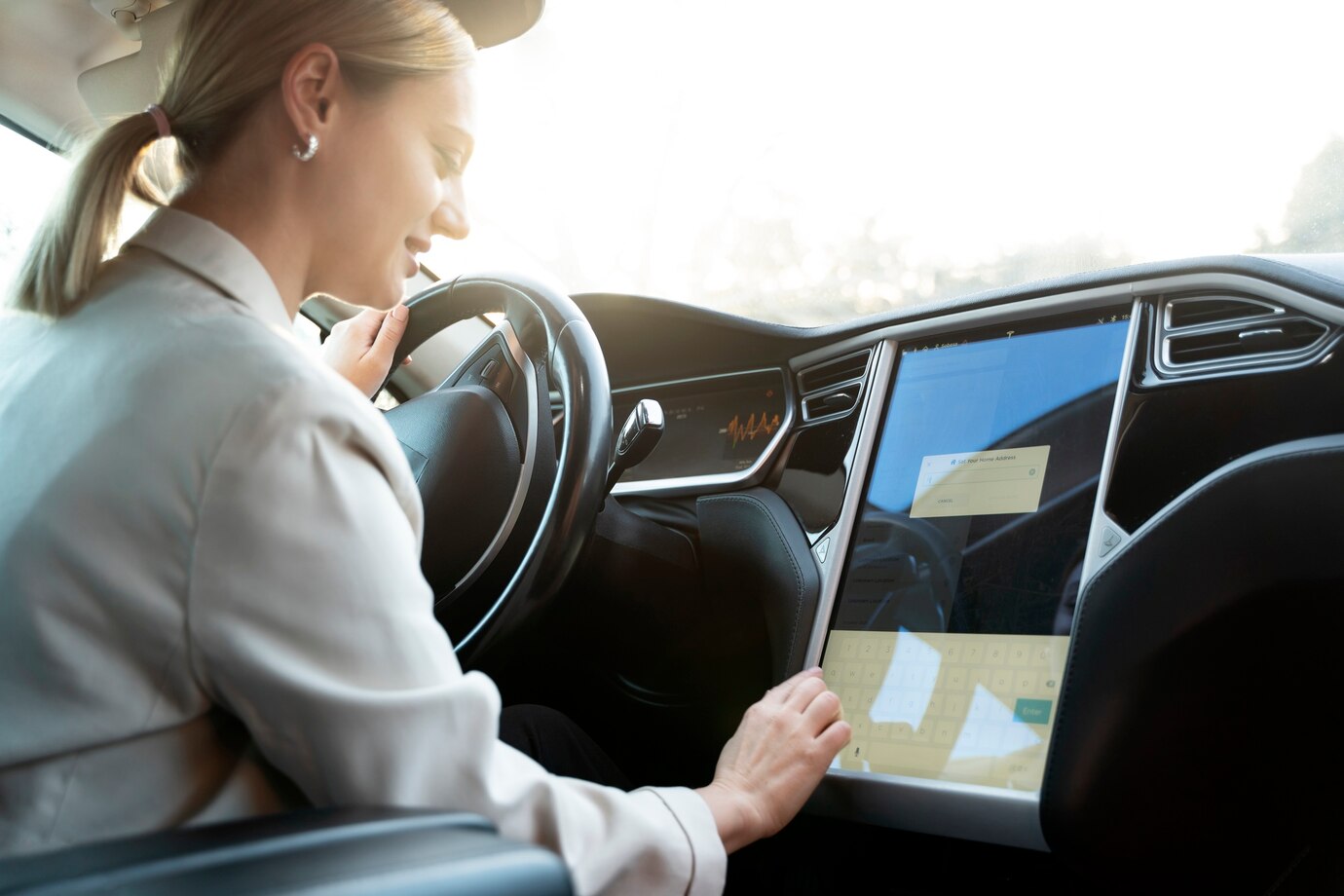Driving the Future: How Tech Is Transforming Private Transportation


The private transportation industry, once defined by paper logs, radios, and word-of-mouth bookings, is undergoing a quiet but powerful technological revolution. From luxury limousine services to executive car fleets, operators are increasingly turning to intelligent software solutions and automation to stay competitive, deliver better service, and drive profits. This shift is not simply about modernization for its own sake—it’s about surviving in a market where efficiency, speed, and customer expectations are evolving fast.
Smarter Dispatching: Reducing Dead Time, Increasing Revenue
One of the most transformative developments is the adoption of AI-powered dispatching systems. These platforms allow fleet managers to assign jobs dynamically, factoring in location, traffic, vehicle type, driver availability, and booking urgency. Instead of relying on a dispatcher with limited visibility, the system automates the process in real-time, reducing empty trips and wasted fuel.
By optimizing how and where drivers are sent, companies reduce overhead and increase the number of rides per day. These dispatching tools can even reassign jobs on the fly if conditions change, meaning a cancellation or late flight doesn’t result in a lost fare. For operators managing multiple bookings or serving high-demand zones, the cost savings and improved vehicle utilization are immediate and measurable.
24/7 Bookings Without 24/7 Staff
Another significant advantage comes from automated reservation systems. These tools allow clients to book rides through a secure online portal at any time, from any device. The system handles confirmation, assigns a driver, and communicates with both parties automatically. No need for an overnight dispatcher or front desk to manage late-night requests.
This always-on booking capacity opens the door to capturing more business without additional labor costs. It also accommodates the modern traveler, who expects instant confirmation and transparency from service providers. The ability to accept, confirm, and coordinate bookings without human input is no longer a luxury—it’s standard.
Predictive Scheduling and Fleet Efficiency
AI and machine learning are also being used to predict demand based on historical trends, seasonality, and real-time inputs. For example, a system may anticipate increased airport demand based on weather-related flight cancellations or adjust resources for known high-traffic weekends such as local events or holidays.
These forecasts help operators prepare proactively, putting more vehicles on the road when it counts and scaling back when it doesn’t. Over time, companies can track performance by vehicle, shift, or driver, identifying patterns that help them streamline operations, eliminate bottlenecks, and avoid underutilized assets.
Dynamic Pricing Tools
Revenue management is no longer reserved for airlines and hotels. Dynamic pricing engines are starting to play a role in luxury ground transportation as well. These systems allow providers to adjust prices based on demand, time of day, route complexity, and vehicle type, all automatically.
With integrated customer data, platforms can also recognize returning users, offering personalized pricing or loyalty incentives without manual oversight. Over time, this leads to better margin control, especially during peak periods. It also discourages price shopping by adding unique, value-driven elements to the service experience.
Streamlined Communication with Clients
Today’s clients expect regular, proactive communication. Fortunately, AI-driven messaging tools can now handle this smoothly. From automated ETA texts to vehicle and driver details sent ahead of pickup, every step of the customer journey can be enhanced with smart notifications.
These features not only reassure clients, especially VIPs and corporate travelers, but also reduce inbound calls to dispatch asking for updates. For clients booking for executives or groups, centralized dashboards provide real-time visibility into ride status, invoices, and scheduling, increasing transparency and trust.
CRM Integration and Customer Retention
Customer Relationship Management (CRM) tools, long used in retail and hospitality, are gaining traction in executive transportation. Integration between booking systems and CRM software allows businesses to maintain detailed rider profiles, track frequency, preferences, and even past complaints or requests.
When a high-value customer books again, the system can flag preferences like “prefers quiet driver,” “needs assistance with bags,” or “requires invoice sent to assistant.” This small level of customization translates into a premium experience that builds loyalty over time.
Moreover, targeted re-engagement campaigns can be automated to win back lapsed clients or upsell services to frequent users. For example, a business traveler who used the service monthly but hasn’t booked in 90 days might receive an email with a personalized offer or reminder of benefits.
Better Group and Event Logistics
Managing transportation for large groups, conferences, or special events can be complex. Modern platforms now include event dashboards, which allow coordinators to view manifests, vehicle locations, and real-time statuses for multiple pickups and drop-offs simultaneously.
These tools simplify coordination with hotel concierges, event planners, or production teams, reducing miscommunication and late arrivals. By automating everything from name boards for airport greeters to guest SMS alerts, providers can manage high-volume scenarios with minimal stress and maximum professionalism.
Vehicle and Maintenance Management
Fleet management is not just about moving people; it’s also about keeping the vehicles moving safely and efficiently. Today’s software can track maintenance schedules, fuel efficiency, tire wear, and more. Predictive analytics can alert managers to mechanical issues before they cause breakdowns.
This proactive approach minimizes vehicle downtime and unexpected repair costs. It also ensures the fleet remains presentable and reliable, which is critical in luxury markets where clients expect spotless interiors and flawless service.
Analytics: Profits in the Numbers
The best tools today come with robust analytics dashboards. Business owners can measure revenue per vehicle, cost per mile, driver performance, occupancy rates, booking sources, and seasonal trends. With this data, decisions become faster and smarter.
Are weekday airport transfers more profitable than weekend leisure rides? Which routes are chronically underpriced? Which vehicles spend too much time idle? These are questions that no longer rely on intuition—they can be answered with a few clicks.
Over time, the ability to analyze and act on performance data becomes a competitive edge. It helps transportation providers do more than stay afloat; it helps them grow.
Elevating the Experience Without Adding Headcount
Perhaps the most compelling benefit of this evolving tech stack is the ability to scale service without scaling payroll. By automating what used to require manual coordination, transportation companies can handle more volume, offer a better experience, and capture new opportunities with the same lean team.
Abdou Louarti, owner of Diamond Transportation, an Arizona-based limo and Charter bus service, notes that tools like these aren’t just about efficiency but mostly about delivering a better service. “By automating the operational side, we’re able to focus more on the customer,” he says. “Our goal is to maximize client satisfaction at every step—whether that’s a Limo VIP airport pickup, a wedding party transfer, a charter bus school trip, or a late-night request.”
From the client’s perspective, the experience feels more polished and intuitive. From the operator’s perspective, it means higher margins, fewer errors, and better client retention.
Final Thoughts
Technology isn’t replacing service in the luxury transportation industry—it’s enhancing it. With intelligent tools, operators can shift their focus from firefighting to strategy, from chasing bookings to building relationships. In an industry where every detail matters, automation and AI don’t dilute the personal touch—they help make it more consistent.
As private transportation becomes more competitive, embracing the new tech stack isn’t just a smart move—it’s a necessary one for any business that wants to thrive in the years ahead.

Source: https://techbullion.com/feed/




